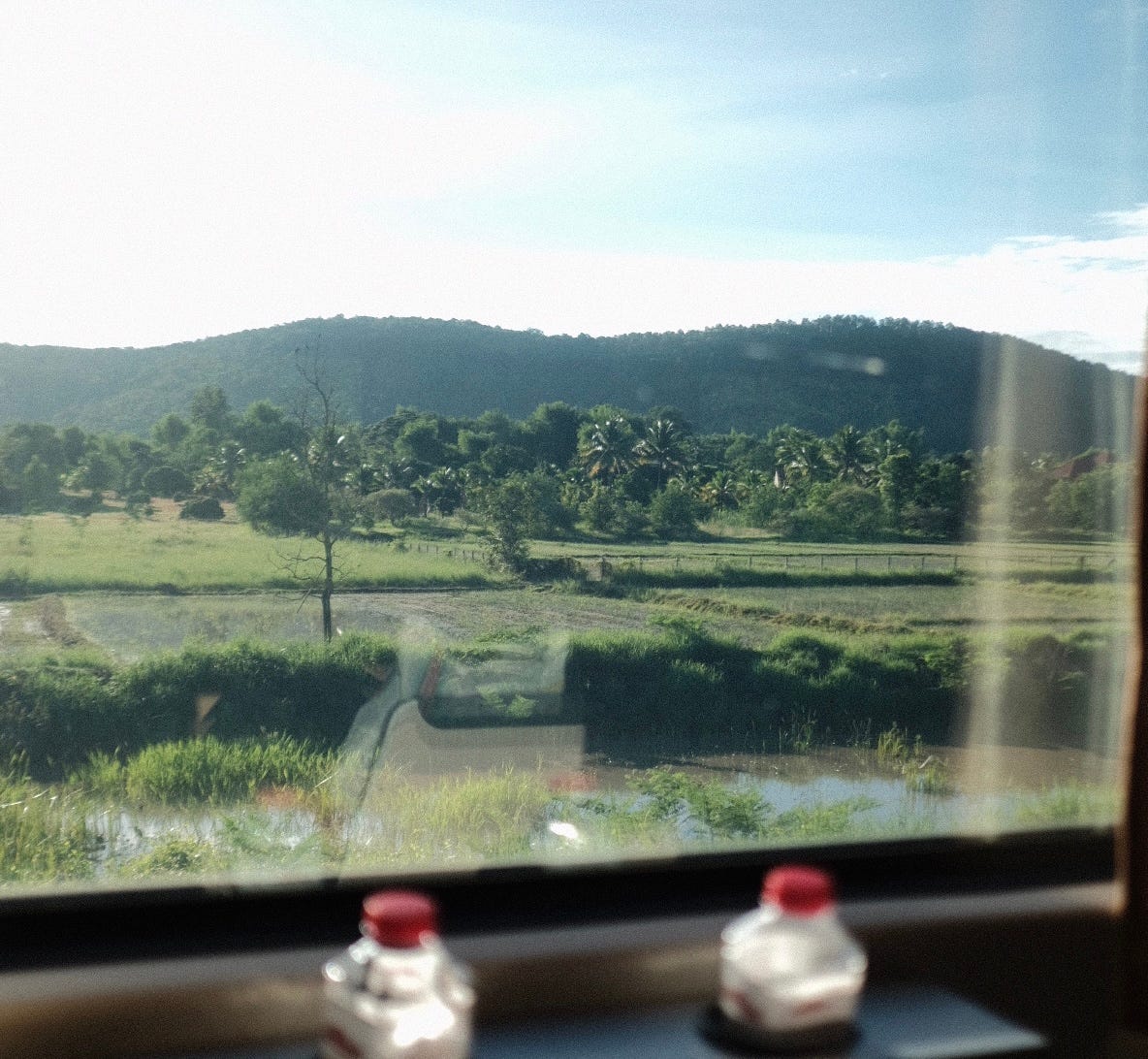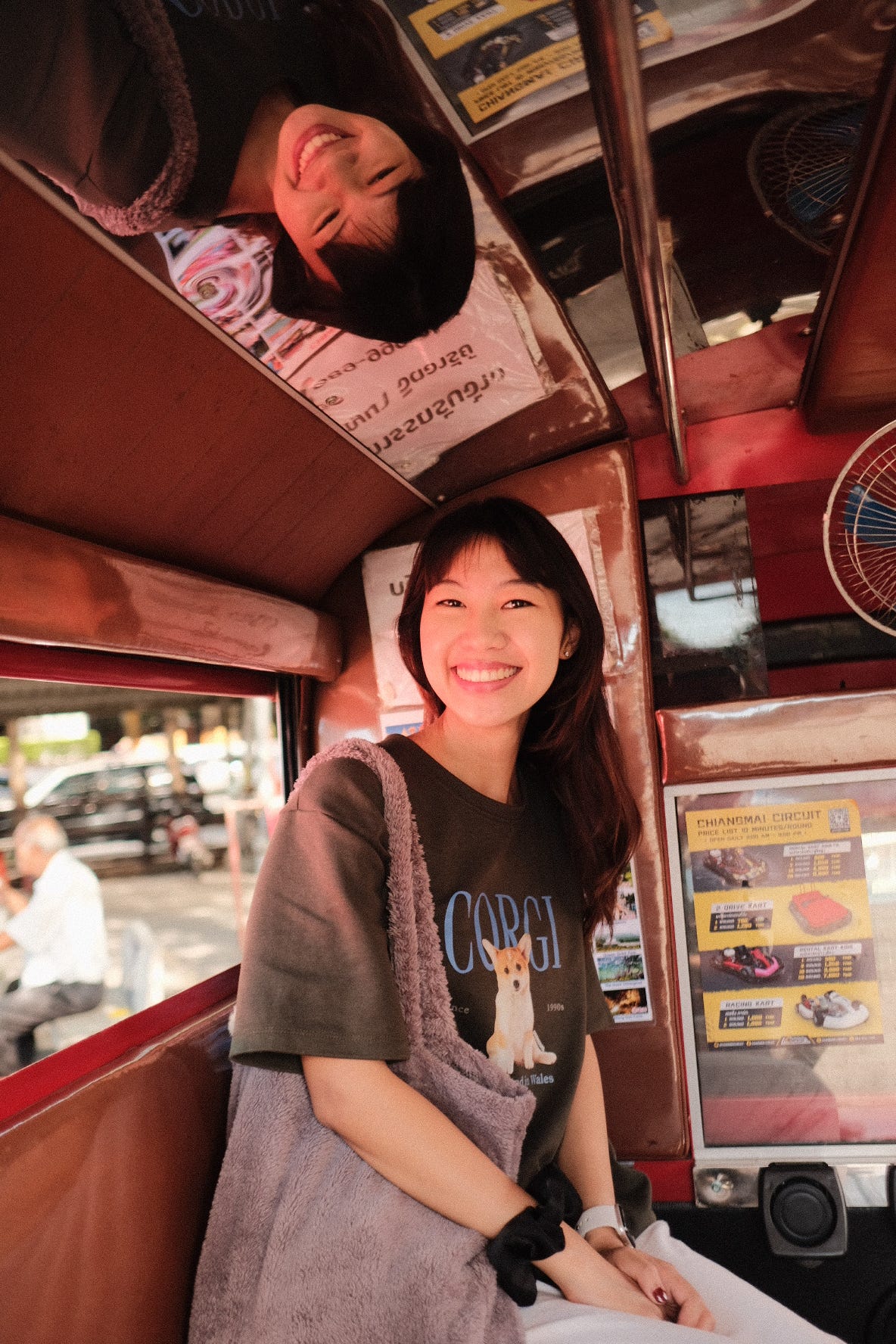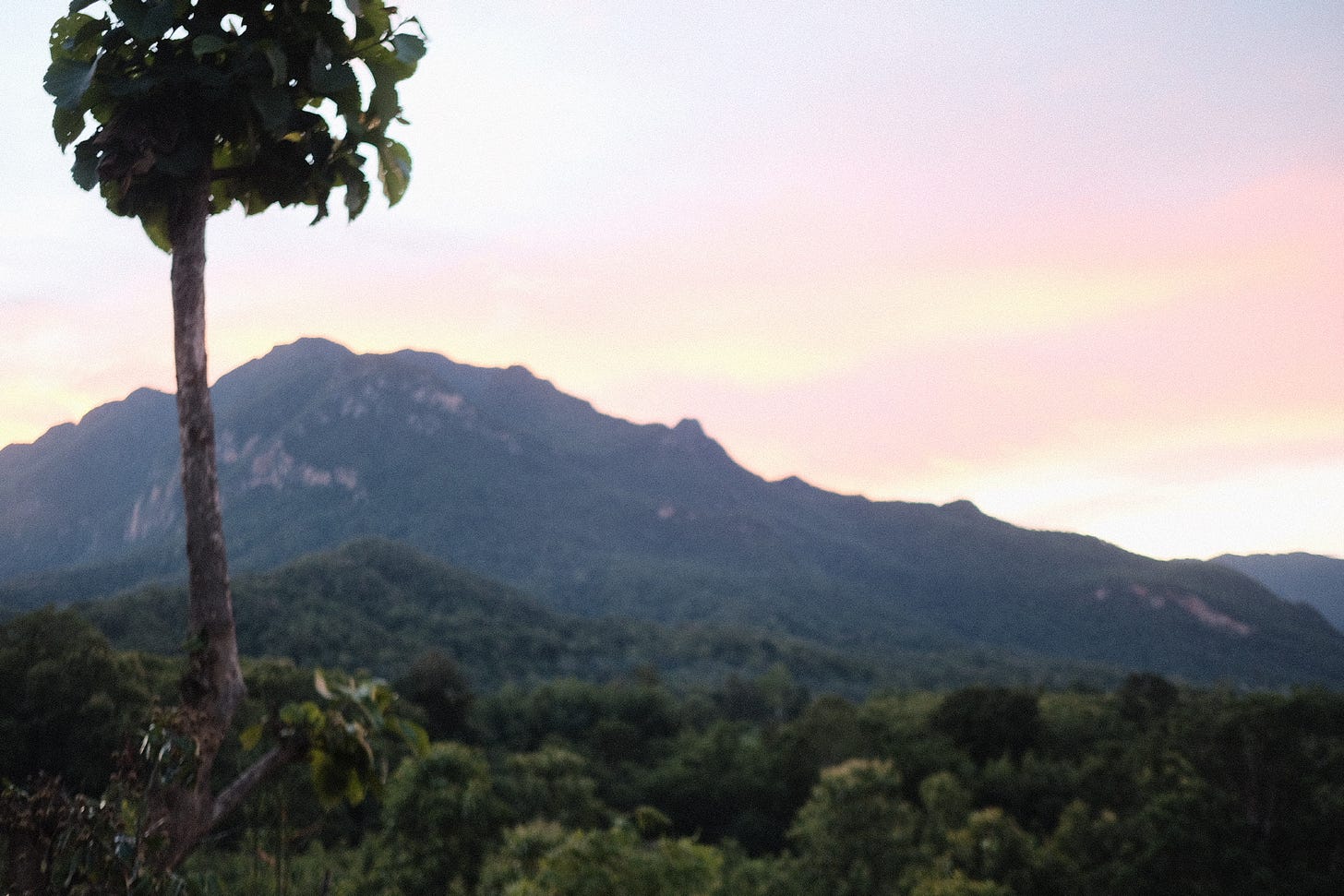An essay I read last week in the New Yorker
had one American philosopher, Agnes Callard, claim that although “traveling is an opportunity to experience a change, it frequently leaves people unchanged.”
A little elitist, I first thought, but the more I read, the more compelling her argument became. In her essay she recounts going on a guided tour of a falcon hospital in response to a search she made: ‘What does one do in Abu Dhabi?’
She does so despite not having any prior interest in falcons, or falconry for that matter — going as far as taking a photo with a falcon on her arm despite having a “generalized dislike of encounters with nonhuman animals.”
She recounts this story to demonstrate that much of our modern life is shaped by algorithmic code — code that’s designed to promote what’s popular and what we may enjoy, based on our habits and likes. The more digital content we consume, the more the machine learns of our habits and likes. Consequentially, as we become more reliant on code for recommendations — an outsourcing of thought, if you will — the more malleable we become. Why else should one end up at a Falconry tour, if not for a keen interest in the bird?
This is why Callard writes that:
“The tourist is a deferential character. He outsources the vindication of his experiences to the ethnologist, to postcards, to conventional wisdom about what you are or are not supposed to do in a place. This deference, this “openness to experience,” is exactly what renders the tourist incapable of experience.”
I was on a bus from from Singapore to Kuala Lumpur when I read the essay — I had just embarked on what would be 4-months of traveling across the world. It was hot, I was sticky, and there was a nagging ache in my left shoulder from the weight of my bag pack.
Needless to say my first instinct was stretch her hypothesis. Sure, I was fairly ‘open to experience’ and was indeed a ‘deferential character’, as she had so put it.
The difference? I’m betting on the personal touch. I’ll be outsourcing recommendations from locals — to friends who know the land.
About a week later, I found myself experiencing two types of joy.
The first type is like a shot of adrenaline. Big joy. It hits you fast and rejuvenates your spirit. My shot came when the mountain range first came into view at 7:06am. Well actually, I didn’t see it the moment I woke up. My travel buddy Delia, did. The first thing she said, as I groggily climbed down from my windowless top bunk was ‘Daniel, check out the view.’
The view immediately caught my attention. It woke me up, groggy as I was, and got me excited to complete the remaining leg of my trip to Chiang Dao, a small province in Northen Thailand. I don’t know why I love mountains as much as I do, but I think viewing a mountain from a distance before the actual hike is deeply humbling. Mountains reflect the vastness of all of created world, but in a bite-sized way. You can see it, but can you conquer it? My answer is mostly ‘no’, but I think being humbled by mountains is part of the fun.
Experiencing the second type — small joy — caught me by surprise. I guess it’s because it doesn’t happen often in the city. We’re so often enamored by things that elicit Big Joy — like the release of the new Apple Vision Pro or Taylor Swift going on tour — that we become desensitized to the things that bring small joy. I’ve written and spoken about the loneliness that comes with remote work in a massive city. It’s easy to feel like an ant in a massive colony; a disposable insect constantly sprayed with messages and ideas to fuel his pursuit towards what society values as ‘big joy’. In capitalism, this is often in the form of commodified goods and services. It stimulates the economy if we’re always looking for the next new thing. It’s how the colony survives.
In contrast, small joy is often free. It’s joy that comes from gratefulness for what already is. For me, that came with the realization that I was in a new season of friendships. Looking back, I recognize I’ve made quite a number of new acquaintances this year. Many were one-off encounters, but there were a handful I could see developing into deeper friendships.
One of them was twenty-five year old Thai native, New. She’s the girl I wrote about when I first visited Bangkok earlier this year. The girl I met on Bumble. Before I left in February she asked if I’d be open to coming back to travel to the mountains in Chiang Mai with her. I said I would be, but I couldn’t fully gauge her sincerity. You know, when you connect with a stranger and they suggest keeping in touch, saying things like “oh you should come visit”, or “If I’m ever in town we should hang out”? I thought it was nothing more than a passing pleasantry.
Turns out she was sincere, and retrospectively I’m thankful I was too.
Traveling to remote areas with friends creates a sense of vulnerability and intimacy. The daily proximity builds trust. It breeds a certain comfort you wouldn’t encounter just by occasionally hanging out in the city.
As we passed through Chiang Mai city to Chiang Dao province we marveled. Delia, New, and myself, in a state of awe? That’s how I would describe it. As the surrounding became more and more remote, the crowds thinned; dogs and cattle and cats became common sight. Soon we found ourselves deep in the tropics. As we stood over the ledge overlooking the a hill, we marveled yet again. Over in the horizon, a mountain loomed tall.
And as the sun set, it crowned the peak with a headdress of light.
Links and Recommendations
Some noteworthy reads from my week
Abraham Lincoln and the Power of Public Opinion — Public Sentiment Is Everything: “
“Whoever can change public opinion can change the government… in order for any policy to be permanent; it must have public opinion at the bottom.”








